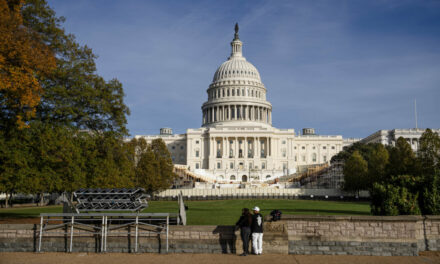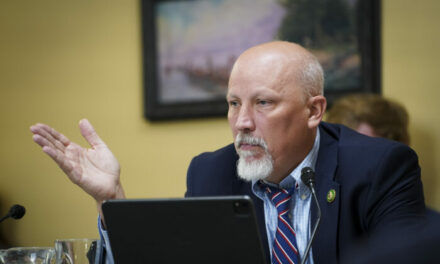We support our Publishers and Content Creators. You can view this story on their website by CLICKING HERE.
Rep. Scalise has expressed concerns that the current version of KOSA would give the federal government more censorship power.
A coalition of 32 state attorneys general, led by Tennessee Attorney General Jonathan Skrmetti, has urged Congress to pass the bipartisan Kids Online Safety Act (KOSA) before the end of the 118th Congress, stating that the legislation is crucial for protecting children from online harm.
The group said social media platforms target minors, resulting in what they described as a “national youth mental health catastrophe.”
“These platforms fail to disclose the addicting nature of their products, nor the harms associated with increased social media use. Instead, minor users receive endless tailored and toxic content,” the attorneys general wrote.
“Increasing evidence suggests these platforms are aware of the negative mental health effects social media burdens its underage users with, but choose to continue these practices.”
Several provisions of the Kids Online Safety Act (KOSA) that are intended to enhance online protections for juveniles were highlighted by the attorneys general in their letter.
One element of the legislation would require social media platforms to implement mandatory default safety settings that automatically activate their most robust protections for minors, instead of requiring users to opt in.
Another provision is intended to prevent addiction by enabling young users and their parents to disengage from manipulative design elements and algorithmic recommendations that are intended to keep children scrolling. The act also aims to give parents improved reporting functionality and tools to identify harmful online behaviors.
“Big Tech knows our children are vulnerable to sextortion, grooming, sexual exploitation and other harms online, but the industry fails to prioritize child safety,” NCOSE CEO Dawn Hawkins said.
“The Kids Online Safety Act will ensure Big Tech is held legally accountable for designing products and platforms in a way that keeps children safe. Congress must use this lame duck session to pass this comprehensive consumer protection bill.”
Tennessee’s attorney general was joined in signing the letter by the attorneys general from the states of Alabama, Arkansas, Colorado, Connecticut, Delaware, the District of Columbia, Florida, Georgia, Hawaii, Illinois, Indiana, Kansas, Kentucky, Louisiana, Maryland, Massachusetts, Minnesota, Mississippi, Missouri, Montana, New Hampshire, New Mexico, New York, North Dakota, Oklahoma, Rhode Island, South Carolina, South Dakota, Utah, Vermont, and Wyoming.
He said the version passed by the Senate could have “unintended consequences,” and said some of it might need to be reworked to pass in the lower chamber.
In an interview with the Washington Reporter, the second-most prominent Republican in the House, Rep. Steve Scalise (R-La.), also voiced his reservations about the Senate-passed version of KOSA in late September. He said that the policy would be utilized to limit conservative opinions.
“There’s some work to be done there to make sure it works properly,” Scalise told the outlet. Scalise expressed concerns that the current version of KOSA would give the federal government more censorship power that he argued would be used not to protect children online but “to go [after] conservative organizations, like pro-life groups.”
“Just because a bill has a nice name, that’s great, but ultimately the policy is what matters,” he said.
The Epoch Times reached out to ByteDance, Meta, Snap Inc., and X Corp., for comment but did not hear back by publication time.
Tom Ozimek contributed to this report.

 Conservative
Conservative  Search
Search Trending
Trending Current News
Current News 







